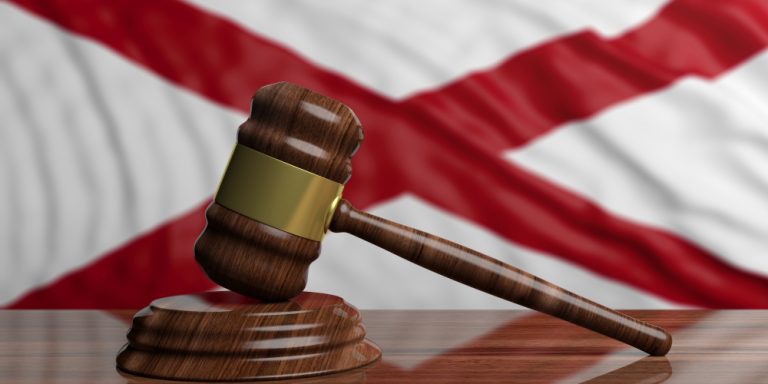Homeowners Insurance Assignments of Benefits May Have Finally Met Their Match
Homeowners Insurance Assignments of Benefits May Have Finally Met Their Match
Few issues have been so hotly disputed in recent years as the issue of what constitutes a proper “assignment” of homeowners insurance benefits. Historically, the rule of assignment creation in Florida is that any instruction, document, or act that vests in one party the right to receive funds that would be due to another party operates as an assignment.[i] Recently, assignments of benefits (“AOB”) have been accepted by some courts as a valid way for a homeowner to confer homeowners insurance policy benefits to a third party, such as a water remediation company or a roofing company.
However, on the other hand, homestead protection is a fundamental right that is enshrined in Florida’s Constitution. While homestead principles do not typically arise in the insurance context, recent cases in which insurers have applied homestead law to fight AOB lawsuits involving the transfer of homeowners insurance benefits may have a profound effect on homeowners insurance law.
In Florida, a residential property is inherently instilled with homestead protection when a person acquires property and makes it his or her home. No action of the Legislature, declaration, or other act on the owner’s part is required to make it the owner’s homestead.[ii] The purpose of the homestead protection is to promote the stability and welfare of the state by securing a householder a home in which the owner and his or her heirs could live beyond the reach of financial misfortune and the demands of creditors.[iii] Article X, § 4 of Florida’s Constitution specifically provides that homestead protection may only be devised by one of three ways: mortgage, sale, or gift. If the homeowner is married, then the alienation of homestead property requires the joinder of both spouses.
The Florida Supreme Court has held that “a waiver of the homestead exemption in an unsecured agreement is unenforceable.”[iv] In fact, the Florida Supreme Court noted that while an exemption can be waived by mortgage, “for over a hundred years we have held that it cannot be waived in an unsecured agreement.”[v] Further, Florida employs a strong public policy in favor of protecting homestead property, such that “an individual cannot waive a right designed to protect both the individual and the public.”[vi]
In recognizing this strong public policy, it is well-settled in Florida that the homestead protection extends not just to the property itself, but also to insurance proceeds obtained as a result of damage to the property.[vii] More recently, the Third District in Quiroga v. Citizens Prop. Ins. Co., 34 So. 3d 101 (Fla. 3d DCA 2010) held a homeowner cannot be divested of constitutionally protected insurance proceeds through an unsecured agreement.
In Quiroga, the issue concerned whether a contingent fee arrangement entered between a homeowner and his attorney was valid where it sought to divest the homeowner of homestead-protected insurance proceeds secured by his attorney.[viii] In affirming the trial court, the Third District held that because the homeowner “did not, and as a matter of public policy, cannot through an unsecured agreement such as a contingent fee agreement in this case, enter into an enforceable contract to divest himself from the exemptions afforded him through Article X, section 4(a),” the contingency fee agreement was unenforceable.[ix]
Consequently, homeowners insurers have begun successfully relying on Quiroga to argue that an AOB is invalid to the extent it seeks to divest the homeowners of constitutionally protected insurance proceeds through an unsecured agreement. Specifically, in the matter of One Call Property Services, Inc. a/a/o Carl & June Schlanger v. St. Johns Ins. Co. the Circuit Court of the Nineteenth Judicial District in Martin County, Florida recently granted summary judgment in favor of an insurer based on Quiroga, and expressly held that that the AOB was invalid was it was an unsecured agreement.[x]
In Schlanger, the Plaintiff, a water remediation company, filed suit against St. Johns Insurance Company for breach of contract.[xi] As is typical in these situations, the insureds discovered water damage to their property and called Plaintiff to perform mitigation services. Plaintiff presented the AOB to the insureds for execution, which sought the assignment of all insurance rights, benefits, proceeds, and causes of action to the Plaintiff. The AOB was signed only by Carl Schlanger. The claim was ultimately denied following an inspection by an engineer. Following the claim denial, Plaintiff filed suit against the insurer based on the AOB. The trial court granted summary judgment in favor of the insurer, finding that the AOB impermissibly sought to divest the homeowners of constitutionally protected proceeds, and therefore, the AOB was invalid.[xii] The trial court held that this was particularly true where the AOB was not also executed by June Schlanger. Therefore, the trial court found that the AOB was invalid and void as a matter of law, such that the Plaintiff lacked standing to file suit.[xiii]
Plaintiff appealed the trial court decision, and on December 15, 2015, the Fourth District Court of Appeal will hear oral arguments in this matter. This case is important because it could invalidate AOBs seeking the transfer of homeowners insurance policies, benefits, and proceeds on constitutional grounds. If the Fourth District affirms the trial court, then the effect of this decision may be profound, far-reaching, and potentially applicable in thousands of pending cases throughout South Florida and the rest of the state.
[i] McClure v. Century Estates, 120 So. 4 (Fla. 1928).
[ii] Osborne v. Dumolin, 55 So. 3d 577 (2011); Hutchinson Shoe Co. v. Turner, 100 Fla. 1120, 130 So. 623, 624 (1930) (citing Baker v. State, 17 Fla. 406, 408–09 (Fla. 1879).
[iii] Chames v. DeMayo, 972 So. 2d 850 (Fla. 2007).
[iv] Chames 972 So. 2d at 853.
[v] Id. at 852 (internal citations omitted).
[vi] Id. at 860.
[vii] Orange Brevard Plumbing & Heating Co. v. La Croix, 137 So. 2d 201, 203-304 (Fla. 1962); Cutler v. Cutler, 994 So. 2d 341, 343 (Fla. 3d DCA 2008).
[viii] Quiroga v. Citizens Prop. In. Co., 34 So. 3d 101, 102 (Fla. 3d DCA 2010).
[ix] Id.
[x] One Call Property Services, Inc. a/a/o Carl & June Schlanger v. St. Johns Ins. Co., 2014 WL 7496474 (2014).
[xi] Id.
[xii] Id.
[xiii] Id.







